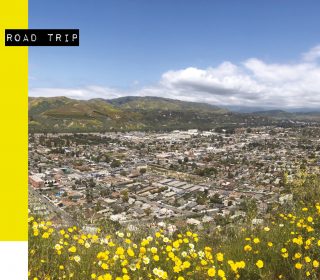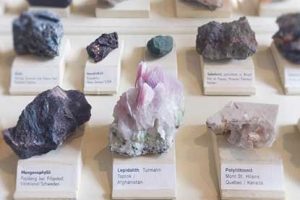How to find happiness in the here and now

I’ll be happy when I have found a new partner…
I’ll be happy when I move job or get promoted…
I’ll be happy when I am finally on holiday…
Sound familiar?
I am sure you have been guilty at some point of saying to yourself the ‘when I am’ phrase.
I would like to believe I’m a much wiser person now than I was in my twenties, and I’m fully aware of the myth that spending time chasing pursuits of happiness will rarely provide a long-term solution to my happiness.
We might feel the initial glow of happiness from jetting away from grey England to a sunny beach destination (if only we could right now), but when we return, it will be the same life we knew previously.
I’ve lived in many places around the world and, in the earlier part of my career, there was definitely a lot of running away from situations only to find that, once the shininess of a new location wore off, I still had many of the underlying problems to deal with; I was just in a different place.
Here’s the big question. What does it actually mean to be happy? Are we wasting our lives by chasing after a feeling or emotion or could we simply experience happiness in the here and now? So how do we bring a little more happiness back into our lives?
“People look to time in expectation that it will eventually make them happy, but you cannot find true happiness by looking toward the future” – Eckhart Tolle
THE “I’LL BE HAPPY WHEN” MYTH
As a positive psychology practitioner, understanding where we are in life and positive emotions is very much central to the definition of happiness. Professor Sonja Lyubomirsky has spent the majority of her research career studying human happiness and has written books such as ‘The How of Happiness’ and ‘The Myths of Happiness’.
Sonja’s scientific research demonstrates how buying into the “I’ll be happy when” myth can have toxic consequences, not only creating a full-blown crisis point when things we set to achieve do not manifest how we expected, but really affecting our mental health.
Based on happiness research evidence, a formula for happiness could be that our happiness is built on our life satisfaction + positive emotions.
Life satisfaction is how content you are right now. For example, do you feel you are working towards your life goals in an adequate manner? Are you regularly present in the moment?
The second component is how frequently you experience positive emotions such as joy, curiosity, pride, enthusiasm and serenity.
THE INGREDIENTS FOR A HAPPY LIFE
Leading researcher, Ed Diener, sums up all the results from his 25 years of research on happiness into four main ingredients for a happy life:
1. Psychological wealth is about more than just money. It is also your attitudes, goals and engaging activities at work.
Think back, has there been a point where you thought that a pay rise would equate to long-lasting happiness, only to find it didn’t make much of an impact in the long term?
2. Happiness is contagious! Not only does it feel good, but it is beneficial to our relationships and the work we do by making us more productive and healthier.
When you are around a colleague who is feeling happy, how does that impact on your mood?
3. Have realistic expectations about happiness. Let’s face it; no-one is intensely happy all of the time. Happiness can often feel more fleeting as an emotion rather than sustained for long periods.
4. Thinking is an important aspect to happiness.
Where is your attention in the here and now? What is your interpretation of the events happening around you? Recalling our positive memories helps to increase our psychological wealth.
THE HERE AND NOW
The trouble with us humans is that we are biologically built to adjust quickly, and that’s what makes us so great! Yet when it comes to happiness, the minute we receive that pay rise or enter a new relationship or move jobs, within a period of time we adjust to these new experiences, and these happiness events become part of our everyday life. This is why some people experience chasing those hedonistic happy emotions, only to realise the problems still exist or that those high levels and the rush of happiness are not sustainable long term.
How do we experience more happiness in the here and now? Positive psychology interventions have been shown to create deeper sustained feelings of happiness over weeks and months.
I want to share two examples of simple interventions that could work for you and you can do them as part of your work life. After all, we spend on average 90,000 hours of our lives working, so we should be deepening our happiness relationship at work, as Diener described with his four ingredients.
If we use our happiness formula correctly, we should find that we are more productive: we sell more if we work in sales, we become better organisational citizens, we are more creative and flexible and can overcome problems or challenges more readily. Who wouldn’t want more of that at work? It means we are naturally going to shine without having to push for a promotion or pay rise; the success will come from having a more maintainable happiness relationship with our work.
HAPPINESS INTERVENTIONS
Gratitude. What went well that week? At the end of the week, write down three things that went well — not three things you completed, but actually where you felt positive about the outcome, no matter or how big or small. Notice how this makes you feel? Does it perhaps reframe a tougher week when you know there were still positive wins, no matter how small?
Generosity. Creating acts of kindness within your workplace. By doing small acts of kindness for colleagues it promotes connections both within ourselves and others we work with, and it becomes contagious. Most of us work remotely since the pandemic – Action for Happiness promotes the 10 Keys to happier living and, at the beginning of each month, have a downloadable Acts of Kindness calendar where you can share with friends or colleagues to see how many you can tick off.
Remember as well to be kind to yourself, so if you do find in one week you felt absolutely nothing good came from the week, that’s OK too. Don’t beat yourself up about how rubbish your life is. Life can be difficult and complex; happiness should come with a disclaimer, that we have to experience what we label as negative emotions: anxiety, anger, sadness, irritability, guilt — to know and fully experience when we are happy. To become more balanced and to be happier in the present, we need to recognise when we experience those emotions and how we can accept them before moving onward.
Learn More
If you are always learning — which is a cornerstone of your wellbeing — you can even take a course on happiness. Here are two recommended online courses, both grounded in scientific, evidence-based research:
The Happiness Trap is an 8-week online programme building genuine happiness from the inside out. It focuses on helping you to reduce stress, relieve anxiety and overcome depression to build the life you want.
Designed to increase your own happiness and to build more productive habits The Science of Well-Being online class takes its cues from the world-renowned University of Yale’s Happiness Class.
Remember the successful pursuit of happiness can be within your reach and by building a more present, grateful and kinder approach to life we can all be a little happier with each other.
Ruth Cooper-Dickson is a Positive Psychology Practitioner and qualified Coach, who has studied Applied Positive Psychology and Coaching Psychology. She is the Founder and MD of the global mental wealth people consultancy, CHAMPS, partnering with progressive organisations helping them to ingrain a culture of positive mental wealth.









